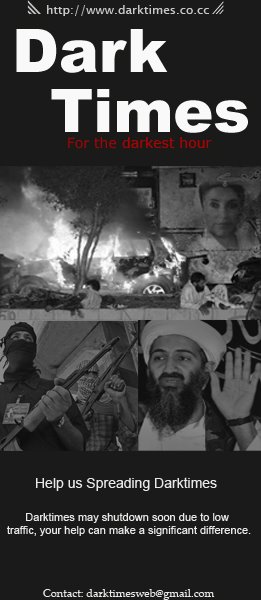Sunday, December 16, 2007

Over six million children are out of school in Pakistan. This puts Pakistan as the country with the third highest number of out-of-school children in the world. This was revealed in UNESCO’s EFA Global Report 2008. The theme for the report is ‘Education For All: Will we make it?’ It reveals a hopeful but extremely worrisome picture of the state of education in Pakistan.
According to recent statistics, less than 60% of the total adult population in Pakistan, along with India and Bangladesh, can read and write with understanding. On a more positive note, the report finds that Pakistan is among 36 countries where the survival rate (not enrolment rate) of girls to the last grade of primary school is higher than boys.
There are many factors that hamper quality education in Pakistan, including crowded classrooms, poor school infrastructure, inadequate learning environments, shortage of teachers and even greater shortage of trained teachers. These are some of the main reasons high dropouts rates, especially at the primary school level. UNESCO’s EFA Global Monitoring Report, 2008, mentions that the ratio of pupils to trained teachers in primary education in Pakistan is less than 50%. That is, there are half as many students as trained teachers. Put simply, there are not enough trained teachers to meet the needs of the students. Despite the many problems confronting Pakistan’s education system, Pakistan is among 24 countries whose public expenditure on education amounts to less 3% or less of GDP.
This is the context in which Children’s Resources International, (CRI) Pakistan is raising the country’s literacy rate and quality of education.
Through an inter-generational literacy initiative or ‘Family Literacy Programme,’ CRI is giving meaning to the lives of those denied the basic right education. What’s more is that it is instilling in them the desire to learn more. The programme enhances the literacy skills of its adult learners, most of who are women, and contributes to the empowerment of Pakistani women.
Through educating adults, the literacy programme benefits children’s education. Research has shown that families have the greatest influence on their children. The more educated they are, the more apt they are to give their child’s education priority, and to extend learning in school into the home.
CRI, Pakistan’s Chief Executive and Founding Director Mahnaz Aziz recently introduced the organization’s innovative Family Literacy Programme to fourteen countries in the region at UNESCO’s Regional Conference in Support of Global Literacy held in New Delhi, India, from November 29th -30th 2007.
First ladies, Education and Literacy Ministers, United Nations Goodwill Ambassadors, international NGOs and research institutions, universities, and private and public donors attended the conference.
Aziz was one of two representatives from Pakistan at the conference. The federal government will be launching this report in February after the elections, in collaboration with UNESCO, UNICEF, and CRI.
During an exclusive interview with ‘The News’ upon her return from New Delhi, Aziz said that Pakistan’s programme was highly appreciated at the conference because it was large-scale, innovative, and systematic.
Aziz told ‘The News:’ “We are working in 400 public schools in Islamabad and about 200 schools outside Islamabad. Our literacy approach is activity-based and our strategy is quite different from other programmes because it engages parents in meaningful literacy. The majority of the participants in our literacy classes are mothers, and their learning is tied to the learning of their children. Parents are made literate in the context of being involved in children’s school activities and creating an educational learning environment at home.”
“Due to frequent dropouts in rural areas, we have amended CRI’s methodology to the extent that interest is being created in teaching.” CRI Pakistan currently has 95 literacy centres in select schools in Islamabad, Rawalpindi and Karachi. Since its inception in 2002, the organization’s adult literacy experts have trained over 400 teachers as adult literacy educators; these teachers have educated over 5,500 adult learners in basic math and literacy. “We expect to train 270 adult literacy trainers in the next year and enroll 3,780 new adult learners,” said Aziz.
The Chief Executive said that literacy is a global challenge and should be tackled as such. Since some of the highest illiteracy rates come from the region of South and South-West Asia, Aziz suggests that the region’s combined initiatives to address literacy challenges, thereby ‘contributing to global sustainable human development and poverty reduction,’ CRI Chief Executive said that now we are not in the position to change our stance with the change of government. “Within Pakistan, we cannot afford to have a different literacy scheme for each government.
We must follow and work on one reform agenda in order to achieve the Education For All (EFA) goals and Millennium Development Goals (MDGs). The nationalistic picture should be contributing to one goal. Moreover, there should be strict accountability for every government initiative.” CRI is doing its part to contribute to the global literacy agenda. She said that the Family Literacy Programme of CRI aims to make parents literate by linking their learning with their child’s learning, a strategy that motivates them to complete CRI’s year-long literacy classes. The objective of the programme is to generate parents’ interest in education and thereby avoid dropouts.
The programme targets non-literate parents, grandparents and older siblings of children in CRI partner schools. The sessions cover 100 lessons in basic literacy in math developed by international literacy experts. The way the Family Literacy Programme is that CRI’s adult literacy experts train primary school teachers as adult literacy educators. These teachers then conduct evening literacy sessions in two-six month phases for 1.5 hours twice a week. Parents receive certificates upon completion of each six-month phase.
[By Afshan S. Khan]








0 comments:
Post a Comment